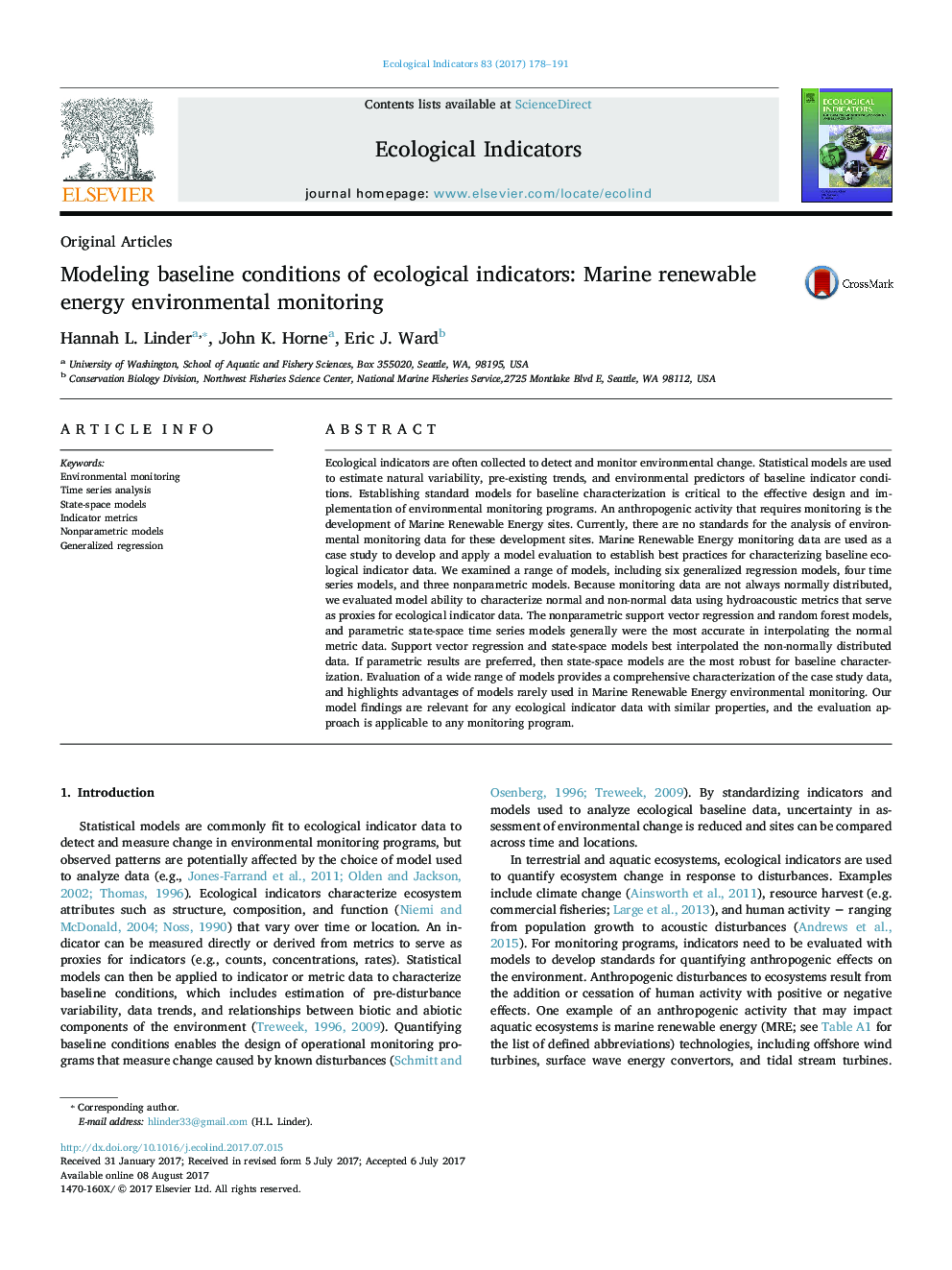| کد مقاله | کد نشریه | سال انتشار | مقاله انگلیسی | نسخه تمام متن |
|---|---|---|---|---|
| 5741489 | 1617119 | 2017 | 14 صفحه PDF | دانلود رایگان |
- 13 regression models were evaluated to characterize ecological indicators.
- Nonparametric and state-space models most accurately interpolated data.
- State-space models are recommended for quantifying baseline state of indicators.
- The evaluation approach can be used in any environmental monitoring program.
Ecological indicators are often collected to detect and monitor environmental change. Statistical models are used to estimate natural variability, pre-existing trends, and environmental predictors of baseline indicator conditions. Establishing standard models for baseline characterization is critical to the effective design and implementation of environmental monitoring programs. An anthropogenic activity that requires monitoring is the development of Marine Renewable Energy sites. Currently, there are no standards for the analysis of environmental monitoring data for these development sites. Marine Renewable Energy monitoring data are used as a case study to develop and apply a model evaluation to establish best practices for characterizing baseline ecological indicator data. We examined a range of models, including six generalized regression models, four time series models, and three nonparametric models. Because monitoring data are not always normally distributed, we evaluated model ability to characterize normal and non-normal data using hydroacoustic metrics that serve as proxies for ecological indicator data. The nonparametric support vector regression and random forest models, and parametric state-space time series models generally were the most accurate in interpolating the normal metric data. Support vector regression and state-space models best interpolated the non-normally distributed data. If parametric results are preferred, then state-space models are the most robust for baseline characterization. Evaluation of a wide range of models provides a comprehensive characterization of the case study data, and highlights advantages of models rarely used in Marine Renewable Energy environmental monitoring. Our model findings are relevant for any ecological indicator data with similar properties, and the evaluation approach is applicable to any monitoring program.
Journal: Ecological Indicators - Volume 83, December 2017, Pages 178-191
